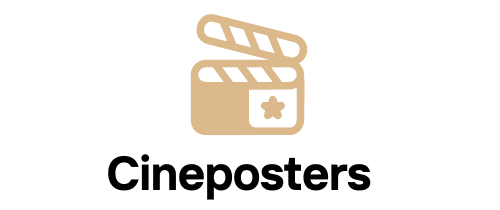In the digital age, healthcare is not limited to hospitals or clinics alone. With advancements in artificial intelligence (AI), care delivery has seen a robust transformation. One such revolutionizing aspect of AI in healthcare is the use of chatbots. Chatbots, based on AI and machine learning algorithms, have started making a significant impact in the mental health space. In this article, we will delve into how AI-powered chatbots can enhance mental health support.
The Role of AI-powered Chatbots in Healthcare
AI-powered chatbots are reshaping the healthcare industry. These are not just ordinary chatbots, they are intelligent. Equipped with AI, they can comprehend human language, respond intelligently, and learn from every interaction to improve future responses.
Avez-vous vu cela : Sport: how is AI shaking things up ?
In the realm of healthcare, these chatbots can serve multiple roles. They can assist patients with scheduling appointments, provide medication reminders, help users understand their symptoms, and offer instant medical advice based on user data. These AI-driven apps offer continuous care and support, without the restrictions of time or geographical location.
When it comes to mental health, the role of these chatbots becomes even more crucial. They can provide round-the-clock support, guide individuals seeking help, and even deliver cognitive behavioral therapy in some cases.
A lire aussi : How are AI-driven robots being used in environmental conservation?
AI Chatbots as Mental Health Allies
The mental health domain has witnessed an unprecedented demand for services in recent years. The prevalence of mental health conditions is on the rise, and so is the need for support and therapy. Here, AI chatbots come as a beacon of hope. They provide effective mental health support to users when human resources might not be available.
Chatbots like WoeBot and Youper, based on AI, have transformed the way mental care is provided. These chatbots use the principles of cognitive-behavioral therapy to help users manage their mental health. They provide personalized therapy, help users track their mood, and offer self-help techniques. Importantly, these chatbots provide users with a safe and private space to express their feelings, which is critical for mental health care.
The Scholarly View: Chatbots for Mental Health
To get an expert perspective on this issue, we can turn to scholarly sources indexed in databases like Crossref. Scholars have also highlighted the potential of chatbots in augmenting mental health support. A study in the Journal of Medical Internet Research found that AI chatbots can significantly reduce symptoms of anxiety and depression.
Moreover, scholars emphasize that chatbots have the potential to bridge the gap between need and accessibility in mental health care. They can cater to a large number of people simultaneously, facilitating prompt care delivery. Academic research also highlights that these chatbots can provide culturally sensitive care, thereby reaching out to diverse user groups.
The Future of AI Chatbots in Mental Health Care
The use of AI chatbots in mental health care is still in its nascent stages, and the future holds immense potential. With advancements in AI and machine learning, these chatbots are expected to become more intelligent and personalized.
In the future, we can envisage chatbots that can provide more accurate diagnoses based on user data. They may even be able to detect early signs of mental health conditions by analyzing a user’s language and emotional tone. Moreover, with the integration of virtual reality, these chatbots can provide immersive therapy experiences.
However, it’s also essential to address the challenges that come with the use of AI chatbots for mental health. These include issues of data privacy, the need for human intervention in severe cases, and the potential of the AI to make errors.
The User Perspective: Acceptance and Concerns
The acceptance of AI chatbots for mental health care among users is of utmost importance. A number of users find these chatbots beneficial as they provide instant support, are available 24/7, and eliminate the fear of judgment.
On the other hand, some users express concerns regarding the lack of human touch in therapy provided by chatbots. Data privacy is another critical concern for users, as these bots handle sensitive personal data. Therefore, while AI chatbots hold immense potential in enhancing mental health support, ensuring user trust and addressing their concerns is also crucial.
Therapeutic Alliance and Misconception: Chatbots and Mental Health
Therapeutic alliance refers to the bond between a therapist and a patient, built on mutual trust, respect, and understanding. In the traditional therapy setting, this relationship is vital as it contributes significantly to the success of therapy. With AI chatbots coming into the picture, the question arises: can a machine create a therapeutic alliance with a user?
Studies on this subject have brought forth interesting findings. For instance, a paper published on Google Scholar reveals that users can form a sort of therapeutic alliance with AI chatbots. Users reported feeling understood and accepted by the chatbots, thereby fostering a sense of connection.
Nevertheless, a therapeutic misconception may occur among users. This refers to the mistaken belief that the primary purpose of the chatbot is care, rather than the gathering and processing of data. It’s crucial to ensure users understand that chatbots, while helpful, are fundamentally algorithms designed to simulate conversation and offer mental health support, not to replace health professionals or traditional therapy.
Despite this, the benefits of chatbots in mental healthcare are undeniable. They provide immediate health support, especially useful during off-hours when traditional health services are unavailable. Moreover, the ability to provide support via social media platforms where most people spend a significant amount of their time increases the accessibility of mental health resources.
Conclusion: The Revolution of Mental Health Support through AI Chatbots
AI-powered chatbots have revolutionized mental healthcare, providing instant and round-the-clock support to individuals battling mental health conditions. They’ve proven to be efficient and effective tools in delivering cognitive-behavioral therapy and helping manage symptoms of various mental health conditions.
The scholarly consensus, as found through databases like Google Scholar, highlights that these chatbots can significantly reduce symptoms of anxiety and depression. They also have the potential to bridge the gap between the need and accessibility of mental health care and provide culturally sensitive care.
However, the integration of AI chatbots in mental health support is not without challenges. Concerns around data privacy, the need for human intervention in severe cases, and potential errors by the AI are issues that need addressing. Overcoming these hurdles to ensure user trust is crucial for the widespread acceptance of these chatbots.
Looking to the future, with advancements in artificial intelligence and machine learning, these chatbots are expected to become more intelligent and personalized. They might even be able to detect early signs of mental health conditions and provide more accurate diagnoses. These chatbots are undeniably a beacon of hope in the mental health space, and their potential to transform mental healthcare is vast.
While AI chatbots are not meant to replace conventional therapy or health professionals, they definitely supplement and enhance mental health support, making it more accessible, immediate, and personalized. As we move further into the digital age, it’s clear that AI chatbots will play a significant role in reshaping mental health care.











